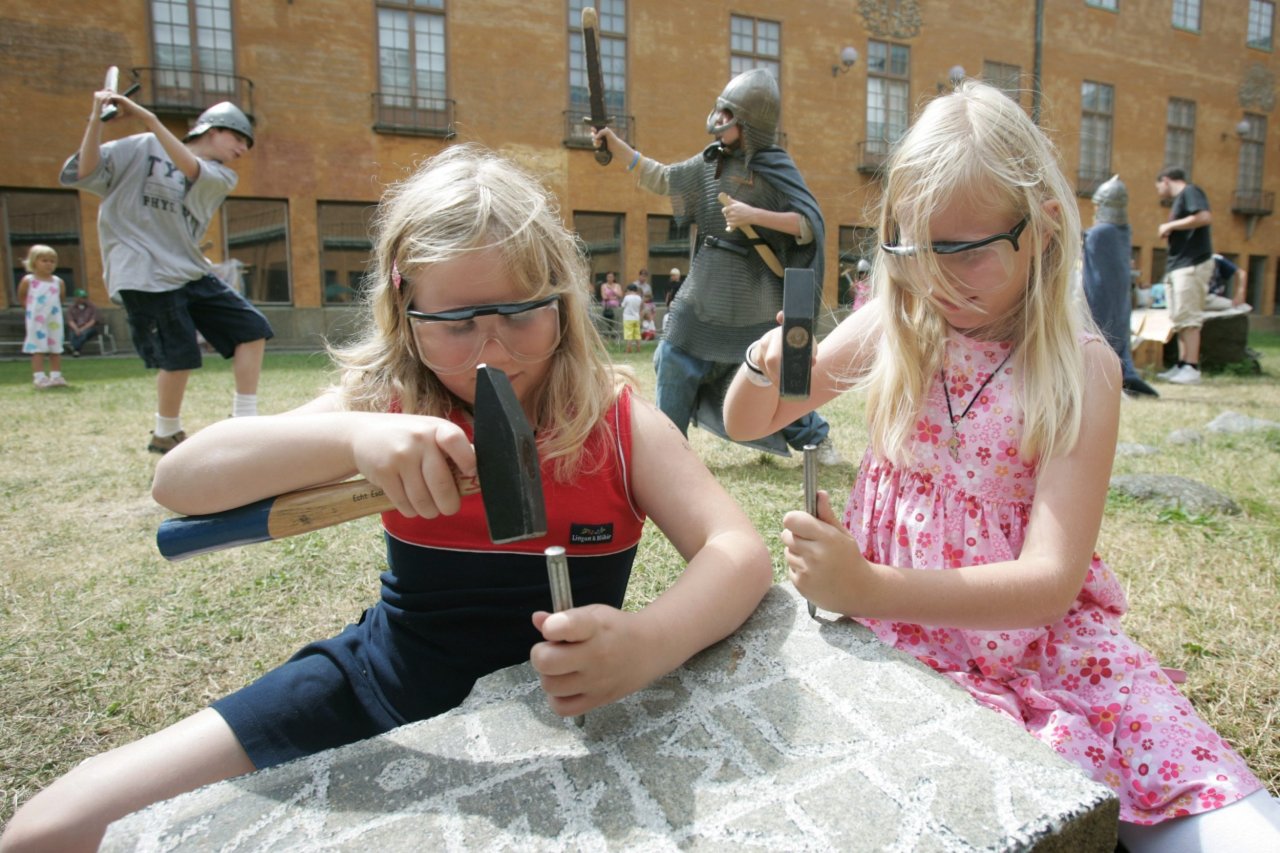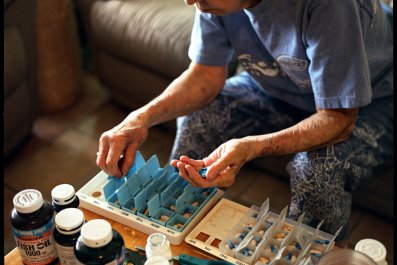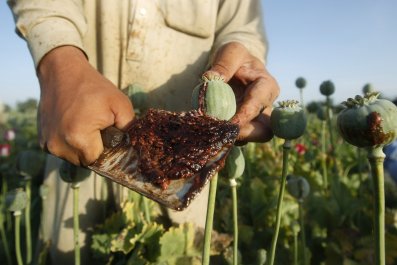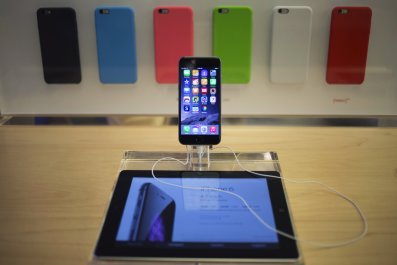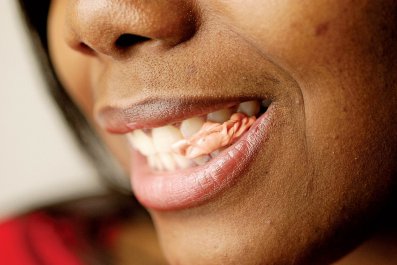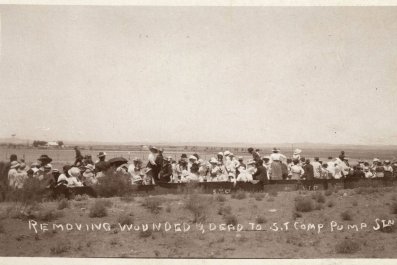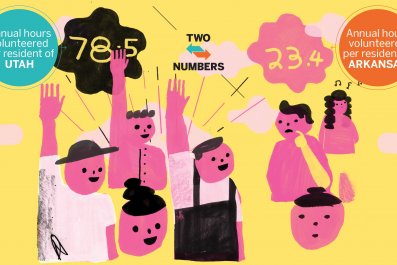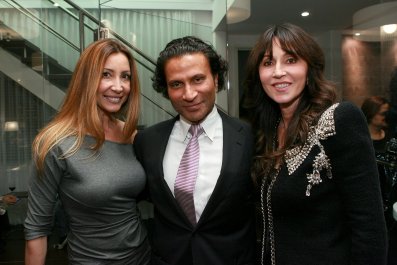"We haven't started using it at home yet, but it's just a matter of habit," says Sofia Bergman, a Swedish mother of two. "But it's a good thing if nurseries and schools use it."
She's referring to hen, the new Swedish gender-neutral pronoun introduced at two Stockholm nurseries in 2012. Today hen is frequently used by Swedish children and adults alike. Now other European countries are joining the gender-neutrality trend.
"Fourteen major retailers have made changes since we started our campaign almost two years ago," reports Tricia Lowther, a mother-of-one in northern England and a member of the Let Toys Be Toys initiative, which lobbies for gender-neutral toy aisles. "They've taken down boys' and girls' signs. The blue and pink aisles remain, but things are happening."
The retailers doing away with boys' and girls' toy signage are major ones indeed: Tesco, Sainsbury's, Morrisons, Boots. The National Union of Teachers, for its part, has launched the Breaking the Mould initiative to address gender stereotypes in primary schools. Marks & Spencer has gone even further, making its toy labelling gender-neutral. The makers of the popular Nerf gun have, in turn, interpreted the trend their own way, launching a pink version for girls. In Norway, Canada and Australia activists are also calling for an end to boys' and girls' signage in toy shops.
Yet in the quest for gender equality in the toddler world, no country has gone as far as Sweden. The nurseries that first introduced hen still use it, and others have joined them. Several new children's books feature a gender-neutral protagonist.
"Sweden is really the pioneer," says Lann Hornscheidt, a professor of gender studies and linguistics at the Humboldt University's Center for Transdisciplinary Gender Studies, who has extensively studied gender-neutral education. "No other country has made such an effort to break down gender barriers among children." (Lotta Rajalin, the director of the nurseries that first introduced hen, did not respond to an interview request.)
In fact, the humble nursery has – at least in Sweden – gone from a place that provides a safe and playful environment for young children to a forum that pioneers new social norms. Though there are no official statistics regarding the number of Swedish nurseries using hen, Maria Hulth of the gender equality consulting firm Jämställt ("equalised") notes that individual teachers now often opt to use hen even when it's not the nursery's policy. But, she notes, Swedish nurseries' and primary schools' gender-neutral efforts don't end at the neutral pronoun: "They're putting a lot of effort into avoiding words like boys and girls, instead just saying 'children'. And norm critique is growing extremely fast." Hulth reports that her own two children routinely use hen with each other.
Not familiar with norm critique? The school of thought is largely a Swedish phenomenon. It teaches that traditional norms, such as distinguishing between men and women, gay and straight, and able-bodied and disabled, must be dismantled in order to achieve an equal society. For example, says Hulth, "all children should be able to wear what they want. Dresses are not just for girls. And pink is a beautiful colour that should be available to everybody."
Researchers are now beginning to probe how much two years of hen has impacted children's behaviour. But, warns Karin Milles, a linguist at Södertörn University in Stockholm, identifying the pronoun's direct effect will be difficult.
"If a boy behaves a certain way, is it because he says hen or because he wears nail polish? It's impossible to tell," says Milles. Several government agencies now use hen, which was added to the official dictionary this year. On an average day, hen is found in 15 newspapers. Some Norwegians have adopted the pronoun as well.
To its supporters, Sweden's nursery world of hen and pink-for-all is a civil rights nirvana. But, argues Dr David Eberhard, a leading Swedish psychiatrist, a new pronoun won't change the fact that the vast majority of people identify either as men or women. "Whatever you choose to call people, the biological differences between men and women remain," he notes. "We should treat each other with respect, but ignoring biological gender differences is crazy. Making us identical won't create more equality." Boys should be allowed to play with dolls – and girls with cars – if they like to, says Eberhard, who coined the expression "safety addiction" in reference to Sweden's health and safety system. "But", he adds, "calling them hen instead of him or her? That's child cruelty."
Given that Sweden is the world's fourth most gender-equal country, as measured in the World Economic Forum's latest gender gap report (only Iceland, Finland and Denmark score higher), practices like the use of hen suggest an already progressive country trying to fix a minor problem.
Far from it, argues Hornscheidt: "The gender gap creates poverty among women. Initiatives like hen are all part of an effort to create a more just world."



